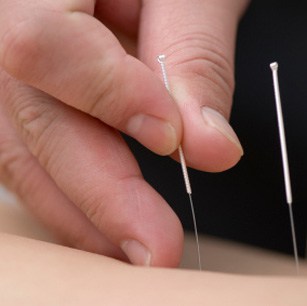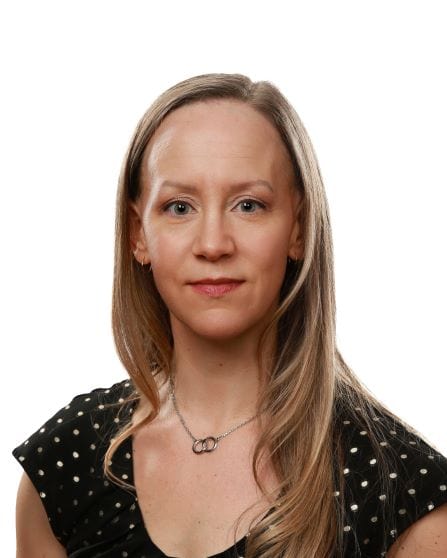
Why Able Body for Acupuncture in Lethbridge?
We offer an extensively trained and experienced acupuncturist, direct billing of insurance and a convenient location in central Lethbridge, making Able Body Health Clinic the place to go for acupuncture in Lethbridge! Dr. Christine Reinhart offers both Traditional Chinese acupuncture and Western medical techniques, including dry needling and electro-acupuncture / intermuscular stimulation (IMS). This means that you will receive the most appropriate approach for achieving your goals in the shortest amount of time possible. Dr. Reinhart is know to exceed patient expectations, and to set the standard for patient care.
What is Acupuncture?
Acupuncture literally means to puncture with a needle. It’s an ancient treatment method that is widely recognized as the primary component of Traditional Chinese Medicine (TCM). Despite having deep roots in China, an adaptation of acupuncture called Western or Medical acupuncture has also emerged in recent years. In both forms (TCM and medical acupuncture), treatments involve the insertion of very small, hair-thin needles into specific points on the body. Here they are gently stimulated to elicit a therapeutic/healing response. In a broad sense, it includes traditional body needling, dry needling, electric acupuncture (electro-acupuncture or IMS), laser acupuncture, microsystem acupuncture involving the ear, face, hand and/or scalp, as well as acupressure (the application of pressure at selected sites).
What’s the difference between Traditional Chinese Medicine (TCM) and Medical Acupuncture?
Traditional Chinese Medicine (TCM)
According to TCM theory, there are twelve energy channels called “meridians” running along the length of the human body. It is thought that illness is caused by an obstruction in the flow of energy along the meridians. Acupuncture therapy is proposed to stimulate the flow of energy, also known as ‘‘qi’’ (pronounced “chee”), through the meridians to restore health and balance to the body and mind. As such, TCM acupuncture is used to treat not only pain-centered conditions, but also a variety of non-pain conditions. These include, but are not limited to gastrointestinal problems (nausea, acid reflux, diarrhea, constipation, IBS), gynecological issues (PMS, cramps, irregular cycles, infertility, hot flushes), and psycho-emotional conditions (insomnia, depression, anxiety, addictions).
Medical Acupuncture
In contrast, medical acupuncture theory relies on current knowledge of anatomy, physiology and pathology to modulate abnormal activity of the nervous system with needles. Medical acupuncture, which is sometimes referred to as dry-needling or intra-muscular stimulation (IMS), is most commonly performed by chiropractors, medical doctors, and physiotherapists. It is mainly used to treat acute or chronic musculoskeletal pain conditions (i.e., pain and/or dysfunction of the joints, ligaments, tendons, muscles). In fact, acupuncture as a treatment modality for chronic pain is beginning to gain credence in the medical community because of the discovery that it can stimulate the release of opioid peptides and serotonin, and facilitate inhibition of nociceptive (pain) pathways.
What style of acupuncture is offered at Able Body?
At Able Body Health Clinic we are pleased to offer our patients both types of treatments! Dr. Reinhart (BSc, MSc, PhD, DC, RAc) is a graduate of both the Contemporary Medical Acupuncture program at McMaster University (Hamilton, ON), which focuses on the science-based application of acupuncture, and the TCM-based Diploma of Acupuncture program at the Calgary College of Traditional Chinese Medicine and Acupuncture (Calgary, AB). Treatments are always customized to the needs of each individual. Patients often receive a unique blend of Eastern and Western-based techniques. With advanced degrees, extensive experience and the ability to draw from both medical and traditional Chinese approaches, Dr. Reinhart offers the most comprehensive approach to acupuncture in Lethbridge.
What happens at the first appointment?
During the initial exam, a full health history is taken; questions are asked about your current and past health, symptoms and lifestyle, and an appropriate physical exam is conducted. Next, a diagnosis, report of findings, and plan of management will be provided. If treatment is deemed appropriate for your particular circumstance, Dr. Reinhart will select needle insertion points based on her extensive knowledge of neuromuscular anatomy and TCM theory. The needles are gently inserted and stimulated to obtain the required physiological effect. In addition to condition specific points, Dr. Reinhart may include some “extra-points”, usually found in the hands and feet. These are known to have strong calming effects on the sympathetic nervous system (aka your “fight or flight” response). The first appointment usually takes about 60 minutes, with follow-up appointments lasting 30-45 minutes.
What conditions can acupuncture help with?
Contrary to popular belief, acupuncture treatment has been very well studied in both Eastern and Western scientific literature. The scientifically proven benefits of acupuncture are diverse and include but are not limited to: relief of chronic pain (reference 1), effective treatment for headaches and neck pain (reference 2, 3, 4, 14), reduction of inflammation (reference 5, 6), improved blood flow (reference 7), reduction in stress/anxiety/depression (reference 8, 9), treatment of seasonal allergic rhinitis (reference 15, 16), reduction of pain during labor (reference 17), as well as improvement in sleep disturbance (reference 10, 11). Acupuncture can be effective as a solitary treatment, or as an adjunct to other therapeutic interventions.
The World Health Organization (reference 12) recognizes the use of acupuncture for treatment of the following conditions:
- Sports related injuries and other movement disorders: sprains and strains, tennis elbow, knee pain;
- Musculoskeletal pain problems: neck pain, shoulder pain, low back pain, joint pain;
- Chronic pain: headaches, sciatica, osteoarthritis, facial and jaw pain;
- Digestive disorders: nausea, constipation;
- Menstrual/Reproductive/Gynecological problems: dysmenorrhea, PMS, perimenopausal symptoms, infertility, induction of labour;
- Respiratory problems: sinusitis, asthma, sore throat and recurrent respiratory tract infections;
- Stress related problems: addictions, depression, anxiety, insomnia
Are there any side effects?
Acupuncture is generally very safe. Serious side effects are rare – less than one per 10,000 treatments (reference 13). Some of the mild, but more common side effects that you should be aware of include:
- Drowsiness occurs in a small number of patients during or after treatments. Many patients will fall asleep during treatment and in fact, patients often report improved sleep on the same night as the treatment.
- Dizziness or light-headedness can be experienced during or following treatment. This is most common in new patients who are particularly nervous, or those who have skipped meals before coming to an appointment.
- Similar to other manual therapies (e.g., chiropractic, massage, physiotherapy), minor soreness or bruising may occur following treatment, but this is rare.
Offering both modern medical and traditional Chinese acupuncture approaches, direct insurance billing and a central location, Able Body Health Clinic is the best place to receive acupuncture in Lethbridge!
References:
1) Acupuncture for Chronic Pain Individual Patient Data Meta-analysis. Arch Intern Med. 2012;10:1-10.
2) Acupuncture for migraine prophylaxis. Cochrane Database Syst Rev. 2009;21(1):CD001218.
3) Acupuncture for tension-type headache. Cochrane Database Syst Rev. 2009;21(1):CD007587.
5) The Anti-Inflammatory Effects of Acupuncture and Their Relevance to Allergic Rhinitis. Evidence-Based CAM, 2013, Article ID 591796.
6) Anti-inflammatory actions of acupuncture. Mediators Inflamm. 2003;12(2):59-69.
7) Evaluation of the Effects of Acupuncture on Blood Flow in Humans with Ultrasound Doppler. Evid Based CAM. 2012: 513638.
8) Acupuncture for depression: a review of clinical applications. Can J Psychiatry. 2012;57(7):397-405.
9) The effectiveness of acupuncture research across components of the trauma spectrum response: a systematic review. Syst Rev. 2012;15(1):46.
10) Acupuncture improves sleep in postmenopause in a randomized, double-blind, placebo-controlled study. Climacteric. 2013;16(1):36-40.
11) Acupuncture for insomnia. Cochrane Database Syst Rev. 2012;12(9):CD005472.
12) WHO. Acupuncture: Review and Analysis of Reports on Controlled Clinical Trials:
13) A cumulative review of the range and incidence of significant adverse events associated with acupuncture. Acupunct Med. 2004;22(3):122-33.
14) An ICON overview of physical modalities for neck pain and associated disorders. Open Orthop J. 2013 Sep 20:7:440-60.
15) Brinkhaus, B. et al. Acupuncture in patients with seasonal allergic rhinitis: a randomized trial. Ann Intern Med. 2013 Feb 19;158(4):225-34.
16) Reinhold, T. et al. Cost-effectiveness for acupuncture in seasonal allergic rhinitis: economic results of the ACUSAR trial. Ann Allergy Asthma Immunol. 2013 Jul;111(1):56-63.
17) Chaillet N. et al. Nonpharmacologic approaches for pain management during labor compared with usual care: a meta-analysis. Birth. 2014 Jun;41(2):122-37.

